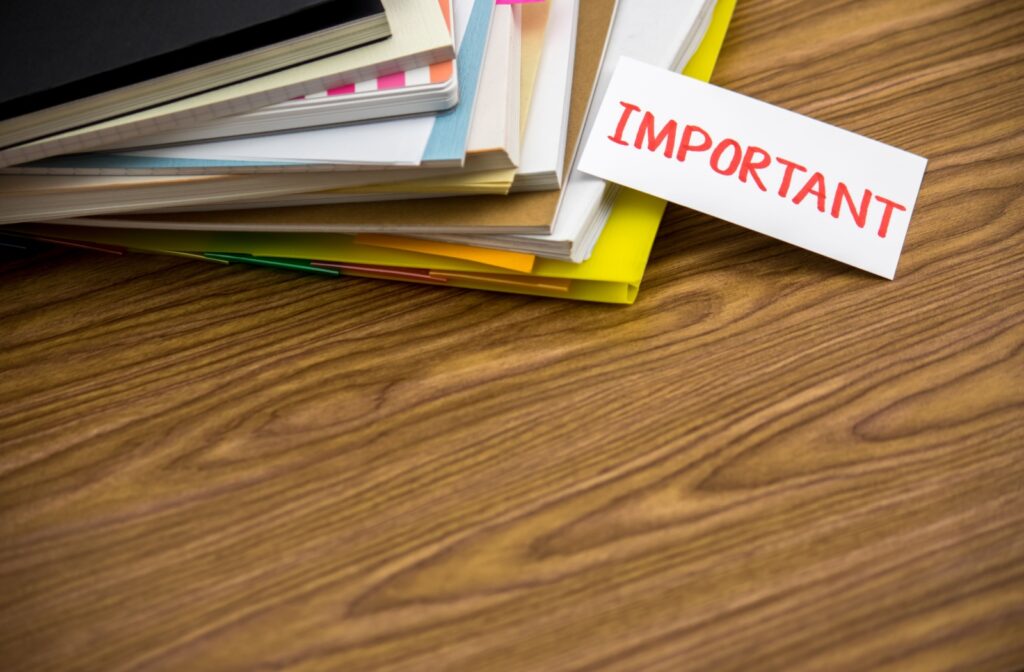An ID is an important document that helps individuals gain access to services and opportunities around the country. For individuals experiencing homelessness, obtaining this critical piece of identification can be challenging. Fortunately, several services, such as our ID clinic, can make the process easier.
The basic method of getting an ID includes filling out a few necessary documents, a temporary address, and completing and submitting the application form. However, this process is not as simple for individuals experiencing homelessness.
Importance of a Valid ID
In Canada, a valid government ID is more than just a card with your name and photo. It provides individuals with a window to access services and opportunities such as basic services, employment, education, and financial services. Without one, individuals become excluded from a wide range of assistance opportunities.
Unfortunately, it’s not uncommon for individuals experiencing homelessness to not have a valid form of government ID at all times.
- Access to Basic Services: In Ontario, a valid ID is necessary to access basic services like provincial healthcare, social assistance, and public housing programs.
- Employment Opportunities: Applying for jobs requires having a valid ID. Employers need to verify the identity and eligibility of potential employees. Without proper ID, finding and maintaining credible employment opportunities becomes increasingly difficult.
- Education: For individuals interested in enrolling in school, identification is required for the application process, in addition to obtaining any student loans, financial aid, and other educational benefits.
- Financial Services: Opening a new bank account or applying for credit cards and loans will require a valid ID. Financial services can help provide vulnerable individuals with assistance to help manage finances and plan for the future.
What Documentation is Considered Valid ID?
In Canada, several documents are considered valid forms of government ID. They each serve different roles and purposes.
For ID to be considered valid, it has to have been issued by either the federal or provincial/territorial government, and not be expired. Ideally, the information on the ID should include:
- Full legal name
- Date of birth
- Photo
- Signature
Having one form of picture ID, like a driver’s license, passport, or Ontario healthcare card makes it easier to access services and opportunities that require a valid ID to access. However, for those who don’t have a form of picture ID, using several forms of non-photo ID documents is possible. For example, using your birth certificate along with your social insurance card.
Why is it Difficult for Unhoused Individuals to Get a Valid ID?
For unhoused individuals with no form of valid ID, several factors make it challenging to combine the valid paperwork required for a new government ID. They include:
- Lack of Permanent Address: One of the primary requirements for obtaining most forms of ID is proof of address and ability to receive mail. By definition, individuals experiencing homelessness lack permanent housing, making it extremely difficult to meet this benchmark.
- Missing Documents: Over time, unhoused individuals may lose their existing IDs and other important documents due to theft, misplacement, or environmental factors. Replacing these documents often requires other forms of ID, creating a catch-22 situation.
- Financial Constraints: The fees associated with obtaining or replacing IDs can be prohibitive for those experiencing homelessness. Even small costs can be significant barriers when resources are scarce.
- Bureaucratic Challenges: Navigating the bureaucratic processes involved in applying for ID can be overwhelming, especially without a fixed address or access to the internet and other resources.

How Does an Unhoused Individual Get a Valid ID?
Despite the challenges, there are several pathways for individuals experiencing homelessness to obtain a valid ID in Ontario.
Community Organizations
Many non-profit organizations offer support to individuals experiencing homelessness who are seeking ID. They can provide guidance, cover application fees, and offer temporary mailing addresses. This includes organizations like shelters and drop-in centers.
Government Programs
Provinces like Ontario and territories have specific programs to assist unhoused individuals in obtaining ID.
Ontario’s ID Safe Program helps individuals store their IDs and important documents safely and assists in replacing them. Service Canada Centers provide general information concerning replacing identification like passports and SIN cards.
Legal Aid
Legal aid services can assist in navigating the bureaucratic hurdles involved in obtaining an ID, especially when dealing with lost or stolen documents. They can provide advice and representation in more complex cases.
Social Workers & Case Managers
Social workers and case managers play a crucial role in assisting unhoused individuals with the ID application process. They can help gather necessary documents, complete application forms, and navigate government systems.
Temporary Solutions
In some cases, temporary ID solutions, such as letters of introduction or certificates from shelters, can be used to access certain services while the individual works on obtaining a permanent ID.
A Guide for Obtaining an ID
The process of obtaining or recovering ID can be challenging. Our ID clinic at Regeneration Outreach Community can help. A general breakdown of this journey includes:
- Gather Necessary Documents: Collect any existing forms of ID, such as a health card or birth certificate, or relevant information. Some applications may require an individual to have a reliable guarantor to sign off on the validity of these documents. This may include a friend, family member, social worker, or outreach worker.
- Seek Assistance: Reach out to community organizations or social workers for guidance and support. We are here to help!
- Temporary Address: Use the address of a shelter or organization as a temporary mailing address.
- Complete Application Forms: Fill out the required forms for the specific ID being applied for. If you’re unsure about the application process, our ID clinic can help.
- Submit Applications: After gathering all of the necessary information and documentation, submit applications at the appropriate government office or service center.
- Follow-up: Keep track of the application status and follow up as needed.
Visit Our ID Clinic
Obtaining a valid ID is necessary for individuals to regain access to essential services and opportunities. While the process may be challenging, several resources and support systems are available to help you during your journey.
Connect with our ID clinic at Regeneration Outreach Community to schedule an appointment with our team.



